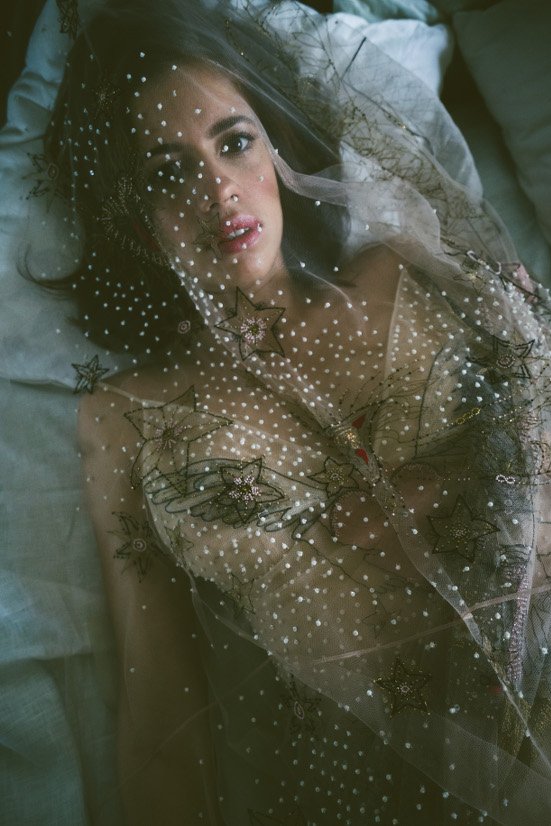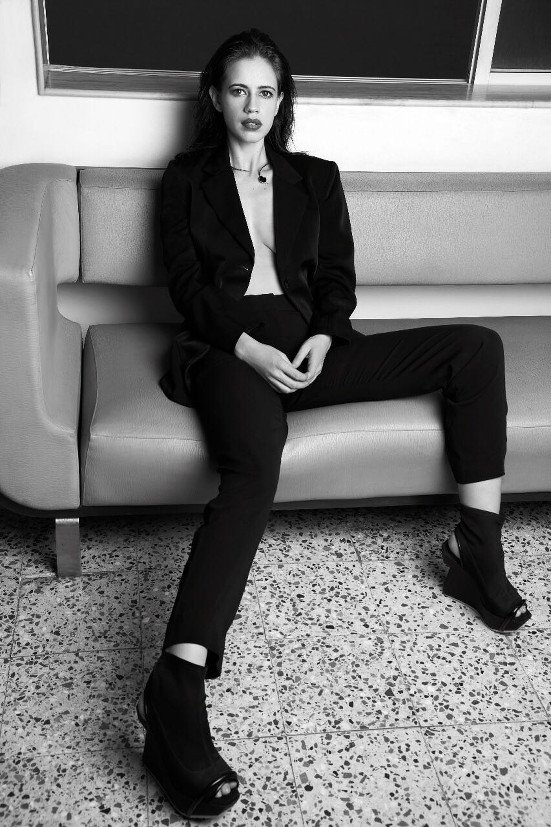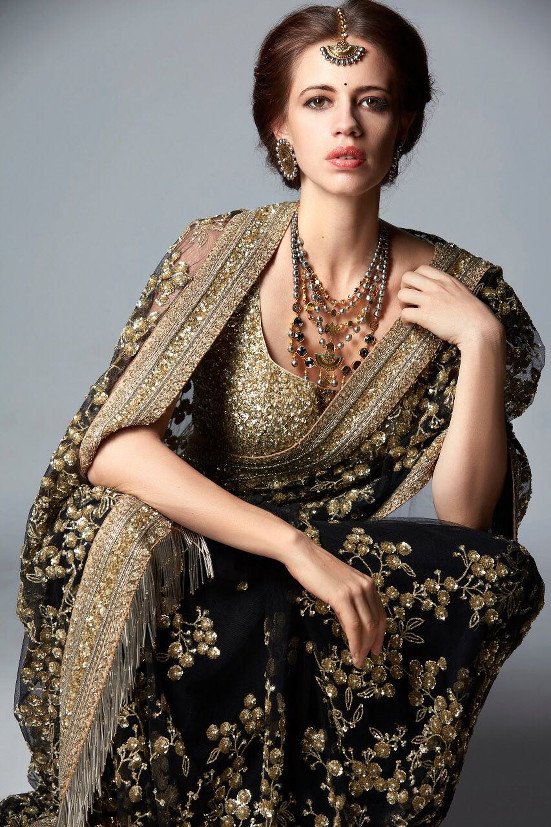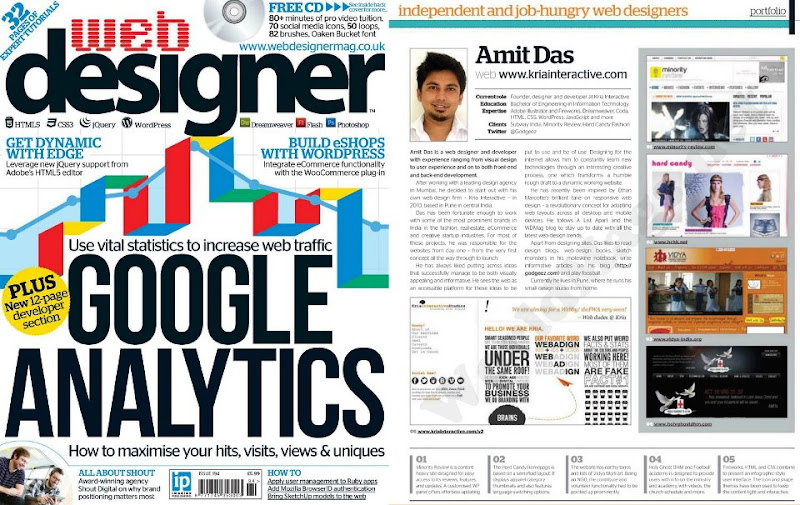
Apart from her wonderful performances in films Kalki Koechlin is also known for her many social stances. Recently, she’s collaborated with Pakistani director Sabiha Sumar for the documentary Azmaish: A Journey Through The Subcontinent. It was presented at TIFF 2017 (Read the review here). Azmaish explores people’s differing views on religious fundamentalism in both India and Pakistan. Kalki chats with our Swati Sharan about everything under the sun including Azmaish, filmi sexism, love of French pastry and chocolates, meditation, yoga and acting. And don’t forget to try Kalki’s favourite French pastry recipe, which she’s provided for our readers.
For the benefit of our readers, could you tell us how you got involved with Azmaish?
Sabiha was present for the MAMI Film Festival in Mumbai about two years ago. She was looking for someone to collaborate with her for this documentary to travel between India and Pakistan. She wanted someone who lived in India who would be curious about Pakistan and had never been there. She didn’t want someone who was political, but who was interested in this from an artistic point of view.
With the film being based on primary research you guys did, how did you go about finding the people you needed for interviewing?
Sometimes they were contacts through somebody we knew. I would write people. The idea was to talk to the common man. We didn’t have any specific kind of people to talk to. Especially in India, we wanted to talk to people in the urban sector because we wanted to focus on the industrialisation of India as compared with Pakistan, which is still very agricultural. The other aspect we were looking at was religious extremism. So it was really through word of mouth, speaking to people, asking people who they knew and getting in touch with them. It was about what accessibility we had and what budgets we had. A lot of things depended on that. We would make Skype calls and make a list of questions to ask people. But it would often go into other discussions once we got there.
You probably didn’t have the advantage of having some academic organisation backing you right?
No we didn’t.

Sabiha Sumar and Kalki
It was interesting how you were saying how while Hindu fundamentalism may play a role in people’s decisions about who they elect, it’s really about the practical reforms on an every day level that’s influencing their decision on who to vote for.
Ya. I think at the end of the day it’s the economic changes. For example, it’s easier for businesses if they don’t have to go through so much red tape or bureaucracy and the facilitation of that made them vote for this government rather than responding out of their sense of Hindu faith.
You grew up in a fairly cosmopolitan place in Pondicherry. What was it like for you to address those people who could be so rigid in their outlook?
For me it was a challenge being myself on screen and not having a character. I was like, ‘God, am I revealing so much of my personal opinions when I am looking at this person? I am trying to be amicable when inside I disagree with a lot of the things they say.’ I think that was quite obvious in this documentary film when you see some of my reactions. But I think the important thing I learned from the film was that silence helps the other person open up. Actually, people are just looking for a platform to speak at. If you just have one question that triggers something off, it’s not about my political opinions or what I think. It’s about what different people think. It was important for me to keep my opinions to myself.
You’ve continued working in the experimental domain in films like Naked or Azmaish. What is your outlook on this considering you’re also successful at the box office?
I don’t really plan what comes my way. I think as artists we’re interested in new things and things which might frighten us a little bit especially in unknown territory. If anything, it broadens you as an actor as well.

The last decade has seen a surge of women in front of and behind the camera. So one could argue it’s because women are becoming educated, but many women in India have been getting highly educated for some decades now. What do you feel changed?
I think cinema itself has opened up. The money is not just coming in from the same production houses. There’s money being invested from different kinds of businessmen. Everyone wants to invest in filmmaking a lot more. There’s the fact that there’s this internet market, Netflix, Amazon and all of that with people just dying for more content. There’s a dearth of content. So I think it’s just come from that; and the fact that women are half the workforce. So they will be part of it.
Earlier, women weren’t as vocal about sexism in films. Now many are taking more proactive steps in these areas. Why is that?
I don’t know, but there seems to be a movement all over the world for feminism that hasn’t happened in a while. It seems to be a topic of discussion and it’s in all areas and not just the film industry. So I think it’s just a very good time to be a woman right now and also the fact that social media has made it a lot easier for people to discuss these topics. Whereas before as a celebrity you might say something, you were very much at the mercy of the person putting out your message in the newspaper or whatever. Today you can put your own opinions up on your own platform.
Like I use Twitter to put my opinions up because many times I will do a long interview about what my acting is and what I’ve decided to do, but none of those things get mentioned in the final article. The things that get mentioned are who are my co-stars and things like that. So when you have direct contact with the public, you are able to express what you truly want to.
In many educated families, women will be told to study medicine or engineering in the name of progress and not get into films. What do you feel about this?
I think it’s not just for women, but generally overall. Indian families have looked at guaranteed success in terms of doctors or an engineering job. However, I think today that’s changing a lot. The market has changed and it’s consistently changing. And again, this boom of a computerised world and social media is offering a completely new market. It’s where people can express themselves through art, through being a personality, or through filmmaking. So ya, I think that is going to change now.
On a lighter note, are you a lover of French pastries and chocolates? If so, which ones are your favorites?
Oh ya, I love French pastries.

Are there any particular favourites of yours?
My mother used to make choux a la crème, which is a French pastry. It was really hard to find the things you needed for this and it took a long time to make. So it would be a real treat for us.
(Kalki has been gracious enough to share this family recipe with us so take a peek at it here).
So it seems your favourite pastry is something that came out of home as opposed to a shop.
Of course it would be considering my mom used to cook French food.
What’s your favourite chocolate?
Wow! What’s my favorite? I like dark chocolate.
Are there any places in India where you like to go shop for these?
Honestly, I don’t get much chocolate from here. I tend to buy from the duty-free.
On a less lighter but pleasant note, you grew up in the Sri Aurobindo Ashram. Were you into meditation and divine experiences?
I don’t know about divine experiences, but as a kid, I was always made to sit in the meditation room and I would hate it. I would get so bored. My parents would be sitting there for one and a half hours and I would be twiddling my thumbs. I would get really antsy. But now when I go back I actually find it very calming to be there just to empty your mind because you have so much going on in today’s life with your phones and the kind of lifestyle that we have. But I don’t think I am a very spiritually advanced person. I just enjoy the calmness.
So you still go back for visits then?
Yes. We have a house there. So I keep going back.
What about your yoga practice?
I do a lot of yoga. I do it at least three times a week. I went and learned Sivananda Yoga. For about a month I did a course and now I do it on my own. But it is very much a part of my routine. After I do my exercises, I tend to do yoga.
So how long does it take you to do your yoga once you’ve done your exercise?
It’s about half an hour to 45 minutes. It depends on how many other things I’ve done in the day. I need to do at least half an hour. Your body needs to stretch out after exercising and not be stiff. I find yoga very good for that.
Do you feel your yoga feeds into your meditation as well?
Yes. I think by the end of it when I am in Shaivasana (corpse pose), I am very much in a meditative state. I’ve emptied my mind. Or I am trying to concentrate on my breathing and be still for some time.
One hears about how yoga can help hone theatre actors. What are your feelings about that?
I guess it helps you concentrate. As a physical actor on stage, it’s very useful because you need to be very agile on stage.
Do you find it helps with inner stillness when acting on stage?
I don’t know if there’s a direct co-relation. But, for example, after I finish my yoga, if I work on my script, I have way more concentration to learn my lines versus if I do it as soon as I come home and I’ve had a busy day. And ya, you’d hope it feeds into your performance as well.
Kalki’s Photos: Suresh Natranjan



0
comments